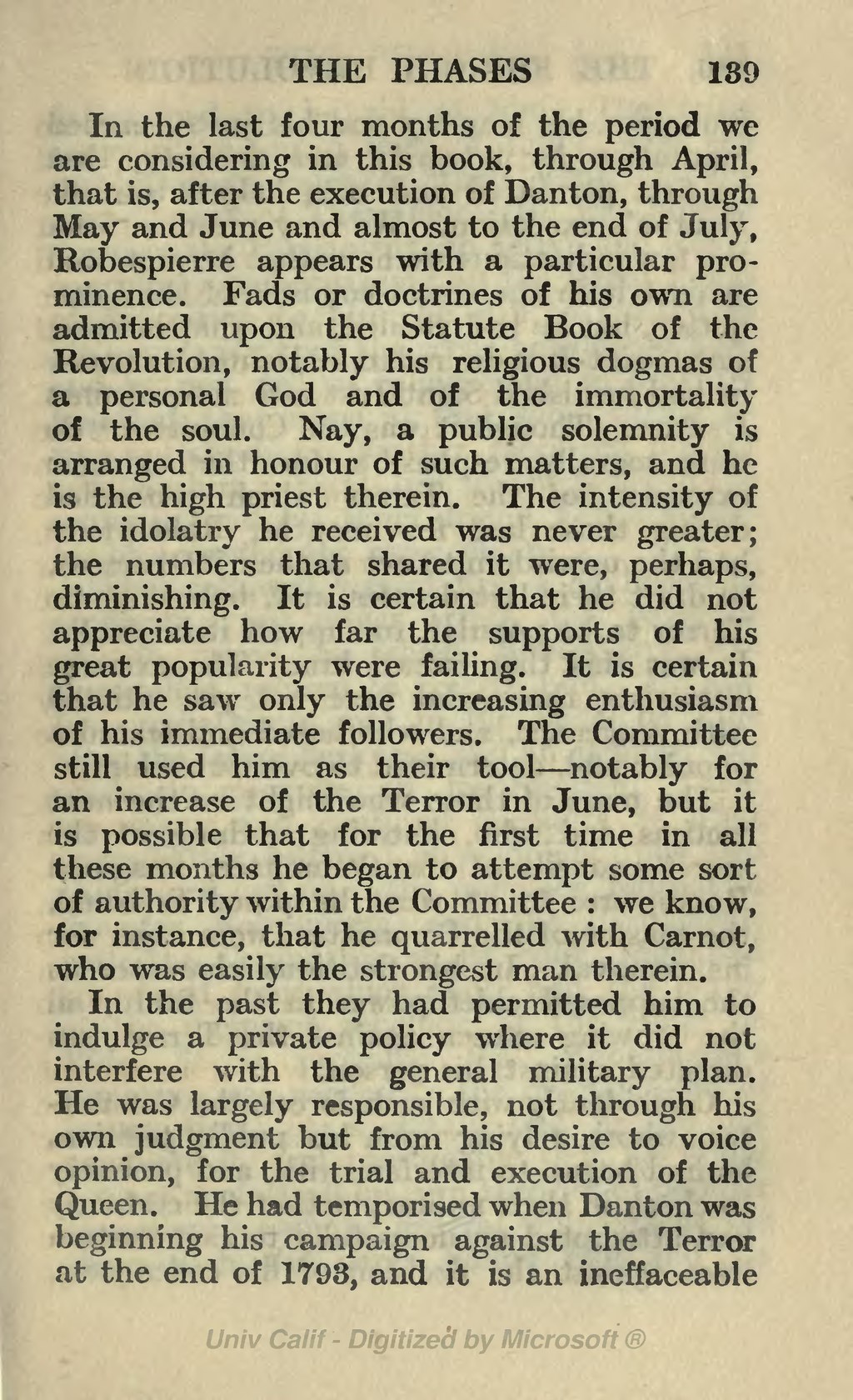In the last four months of the period we are considering in this book, through April, that is, after the execution of Danton, through May and June and almost to the end of July, Robespierre appears with a particular prominence. Fads or doctrines of his own are admitted upon the Statute Book of the Revolution, notably his religious dogmas of a personal God and of the immortality of the soul. Nay, a public solemnity is arranged in honour of such matters, and he is the high priest therein. The intensity of the idolatry he received was never greater; the numbers that shared it were, perhaps, diminishing. It is certain that he did not appreciate how far the supports of his great popularity were failing. It is certain that he saw only the increasing enthusiasm of his immediate followers. The Committee still used him as their tool—notably for an increase of the Terror in June, but it is possible that for the first time in all these months he began to attempt some sort of authority within the Committee: we know, for instance, that he quarrelled with Carnot, who was easily the strongest man therein.
In the past they had permitted him to indulge a private policy where it did not interfere with the general military plan. He was largely responsible, not through his own judgment but from his desire to voice opinion, for the trial and execution of the Queen. He had temporised when Danton was beginning his campaign against the Terror at the end of 1793, and it is an ineffaceable

